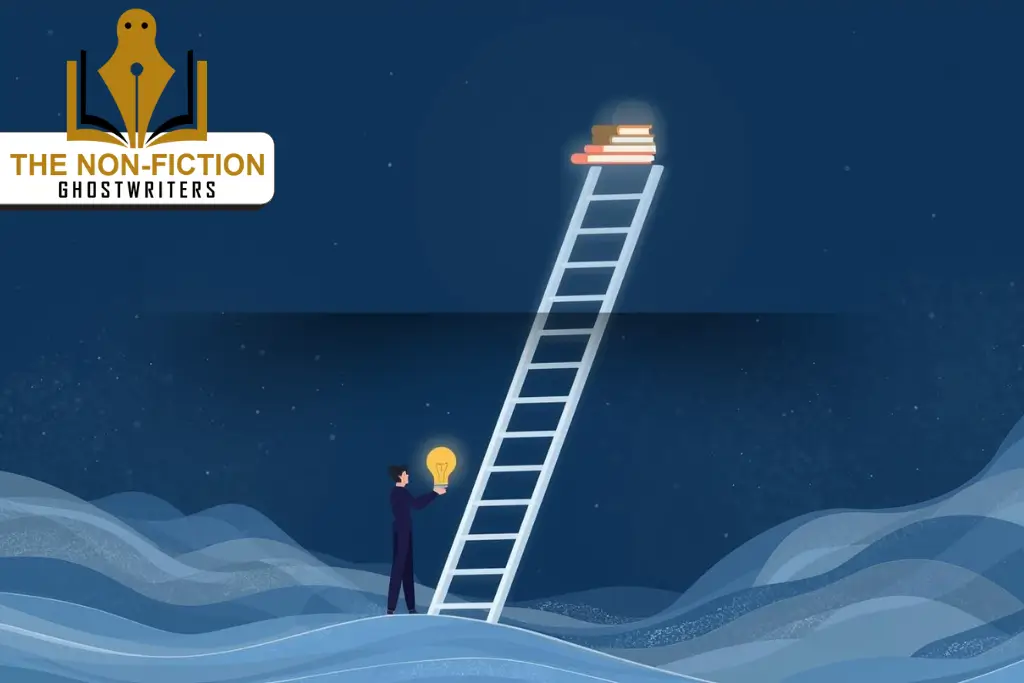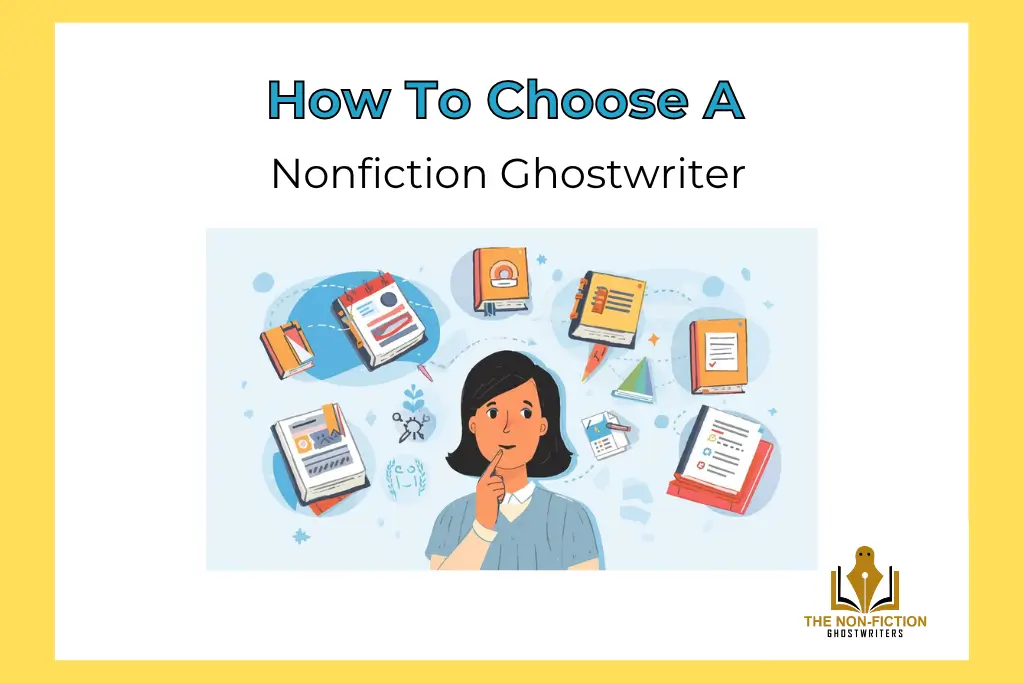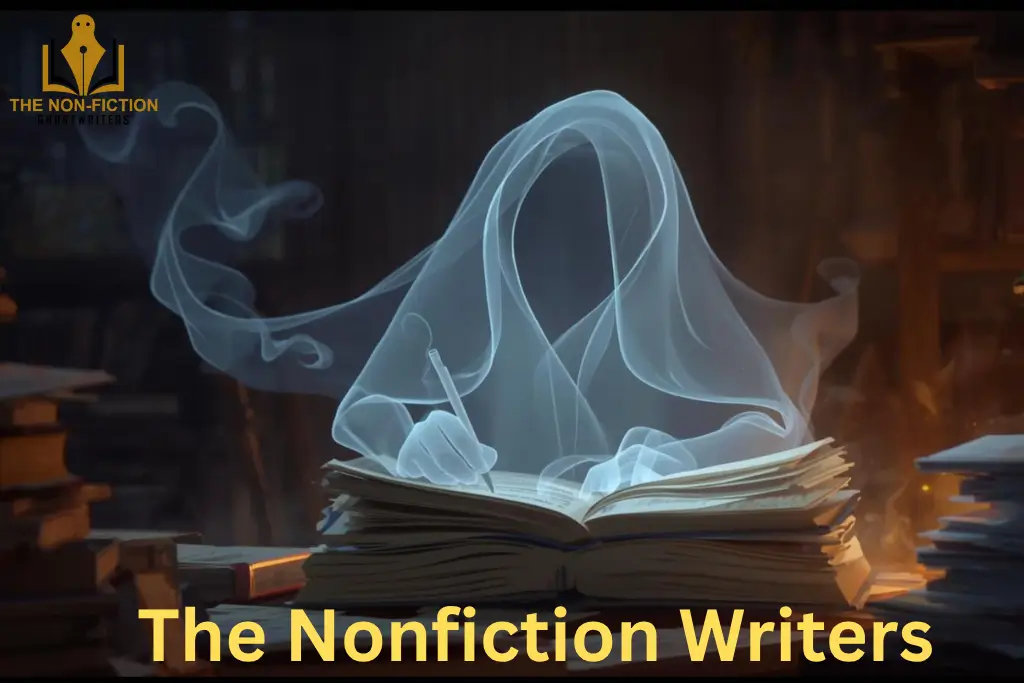
Have you ever wondered what a ghostwriter does or why so many high-profile individuals hire one? You’ve probably heard the term ghostwriter tossed around in publishing, but what does it really mean, and how can it benefit someone with a nonfiction book idea?
A ghostwriter is a professional writer who creates content for another person, often under the client’s name. While the work is fully credited to the client, the ghostwriter brings expertise, structure, and storytelling skills to the project. This collaboration allows individuals and professionals to transform their ideas into polished nonfiction books without struggling through the writing process themselves.
In this guide, we’ll dive deep into what ghostwriting is, how it works, and why hiring a ghostwriter could be your shortcut to publishing a credible, compelling nonfiction book. Whether you’re curious about ghostwriting meaning, how to become a ghostwriter, or looking to hire a professional, this blog is your ultimate resource.
1. What Is a Ghostwriter?
A ghostwriter is a professional writer who crafts content on behalf of someone else, typically without receiving public credit. In other words, the client gets the recognition for the work, while the ghostwriter operates behind the scenes.
The concept of ghostwriting has existed for centuries, particularly in literature, politics, and entertainment. Many famous autobiographies, business books, and motivational books were crafted by ghostwriters who expertly translated someone’s knowledge, experience, or story into a readable format.
Common misconceptions:
- Ghostwriting is not plagiarism. Every project is created uniquely for the client.
- It doesn’t diminish the client’s credibility; instead, it enhances it.
- Ghostwriters can work in different fields like music, speeches, LinkedIn posts, or scripts—but this blog focuses exclusively on nonfiction book ghostwriting.
2. What Is Ghostwriting in the Context of Books?
Ghostwriting for books involves taking an author’s ideas, experiences, or expertise and turning them into a finished manuscript. The ghostwriter’s role is to ensure the book is engaging, well-structured, and professionally written, while faithfully reflecting the client’s voice.
Fiction vs Nonfiction Ghostwriting
While ghostwriting exists for fiction and nonfiction, the processes differ significantly. Fiction often requires creative storytelling and imagination, while nonfiction demands accuracy, research, and credibility. To learn more about these differences, you can check our blog Nonfiction vs Fiction Books.
Nonfiction ghostwriting requires:
- In-depth research
- Understanding the client’s industry or personal experiences
- Ability to organize content logically and persuasively
- Maintaining the author’s unique voice
Because nonfiction books often serve as thought leadership, self-help guides, or expert resources, hiring a skilled nonfiction ghostwriter can make the difference between a mediocre book and a bestselling, credible publication.
3. Why Do People Hire a Ghostwriter?
Many individuals consider hiring a ghostwriter for several reasons:
1. Lack of time
Writing a book is time-consuming. Professionals like entrepreneurs, doctors, or CEOs often have valuable insights but limited time to write a full manuscript.
2. Lack of expertise
Even brilliant minds may not know how to structure a book, edit professionally, or write in a compelling style. A ghostwriter bridges this gap.
3. Need for professional polish
A ghostwriter ensures the content is readable, engaging, and formatted correctly, which enhances credibility.
Benefits of hiring a ghostwriter:
- Save months (or years) of time
- Transform complex ideas into accessible content
- Ensure professional quality and consistency
- Help your book resonate with the target audience
4. How Does Ghostwriting Work?
The ghostwriting process for nonfiction books typically follows several key steps:
Step 1: Idea and Concept Discussion
The process begins with a consultation. The ghostwriter learns about your book idea, goals, target audience, and timeline.
Step 2: Research and Outlining
A solid outline ensures the book is structured logically. For nonfiction, research is critical—this may include reading studies, interviews, or gathering existing content from the client.
Step 3: Interviews with the Client
Ghostwriters often conduct detailed interviews to capture the client’s voice, expertise, and personal experiences.
Step 4: Writing and Revisions
The manuscript is drafted according to the outline. Revisions are done collaboratively to ensure the client’s voice and vision are preserved.
Step 5: Editing and Polishing
Professional editing ensures grammar, style, and flow meet publishing standards.
Confidentiality and Contracts
Ghostwriting is built on trust. Contracts typically ensure confidentiality and define ownership rights—your name remains on the book, while the ghostwriter remains behind the scenes.
5. How to Become a Ghostwriter
If you’re curious about pursuing ghostwriting as a career, here’s what you need to know:
Skills Needed
- Exceptional writing ability
- Research skills
- Empathy and ability to capture another person’s voice
- Professionalism and discretion
Building Credibility
Start by creating a portfolio of your work, even if small projects. Freelance platforms like Upwork and Fiverr are great starting points. Testimonials and referrals are key for attracting clients.
Finding Ghostwriter Jobs
- Freelance marketplaces (Upwork, Fiverr)
- Specialized ghostwriting agencies
- Networking and referrals from professional circles
Challenges
- Ghostwriting requires adaptability; you must match the client’s tone and style.
- Deadlines can be strict.
- Success depends heavily on reputation and reliability.
6. Ghostwriter Jobs and Opportunities
Ghostwriting opportunities vary by niche:
- Books: memoirs, self-help, business, health, wellness
- Blogs and Articles: thought leadership pieces
- Speeches and Presentations: professional or political
The demand for nonfiction expertise has grown exponentially, especially as professionals aim to establish themselves as thought leaders. High-profile clients and Fortune 500 companies increasingly seek ghostwriters who can deliver polished nonfiction manuscripts.
7. AI and Ghostwriting: Friend or Foe?
With the rise of AI tools, many wonder if ghostwriting is becoming obsolete. Here’s the reality:
AI tools can help:
- Generate outlines
- Suggest topics
- Create draft content
But human ghostwriters remain essential for:
- Capturing personal voice and authenticity
- Ensuring research accuracy
- Structuring a book for maximum impact
- Delivering emotional depth and storytelling
Professional nonfiction ghostwriters may use AI to enhance efficiency, but it cannot replace the expertise, insight, and creativity of a skilled writer.
8. Ghostwriting Services at The Nonfiction Writers
At The Nonfiction Writers, we specialize in nonfiction book ghostwriting only. Here’s why our clients trust us:
- Experience: I began my freelance writing career in 2015 while in medical school.
- Expertise: My Doctor of Physical Therapy degree and medical background allow me to write credible, evidence-based self-help nonfiction books.
- Proven Track Record: Within a year, I earned Top Rated Badges on Fiverr and Upwork and have helped hundreds of clients—including high-profile celebrities, Fortune 500 executives, and self-publishers.
- Passion: My love for reading and writing began in childhood. I completed my first paid writing task at just seven years old.
Our services focus on transforming your ideas into a professionally written nonfiction book, preserving your voice and ensuring credibility. If you’re ready to turn your vision into a published work, contact The Nonfiction Writers today.
9. When Should You Hire a Nonfiction Ghostwriter?
You might consider hiring a ghostwriter if:
- You have a brilliant book idea but no time to write.
- You need expert guidance to structure and research your content.
- You want a polished, professional product that resonates with readers.
Ghostwriting works for:
- Memoirs and personal development books
- Health, wellness, and fitness guides
- Business leadership and entrepreneurship books
- Thought leadership publications
Cost and ROI:
While ghostwriting is an investment, a professionally written book can establish authority, boost credibility, and open opportunities in speaking, coaching, or consulting.
10. FAQs on Ghostwriting
A ghostwriter writes behind the scenes, while a co-author shares public credit on the cover.
Yes. Ghostwriting is a legitimate service and fully legal.
Fees vary by experience, project length, and complexity. Rates can range from a few thousand to tens of thousands of dollars for nonfiction books.
Depending on length and complexity, it can take 3–12 months from concept to manuscript.
While they cannot guarantee bestseller status, a professional ghostwriter can dramatically improve the quality, marketability, and credibility of your book.
Conclusion
So, what is a ghostwriter? In short, a ghostwriter is your strategic partner in turning ideas into professionally written nonfiction books. Ghostwriting allows busy professionals, experts, and thought leaders to share their knowledge, insights, and stories while saving time and ensuring a polished result.
If you have an idea for a nonfiction book but don’t know where to start, The Nonfiction Writers can help you transform your vision into reality. Contact us today, and let’s craft a book that reflects your expertise and leaves a lasting impact.
For more insight into nonfiction books, check out our blog Nonfiction vs Fiction Books to understand the key differences and why nonfiction ghostwriting requires specialized skills.



[…] have added a detailed blog about “what is a ghostwriter”. You can read the blog if you need specific details about ghostwriting. For now, let’s focus […]
[…] must be thinking, “What is a ghostwriter?” Let me answer […]
[…] “what is a ghostwriter?” Keep reading for the […]